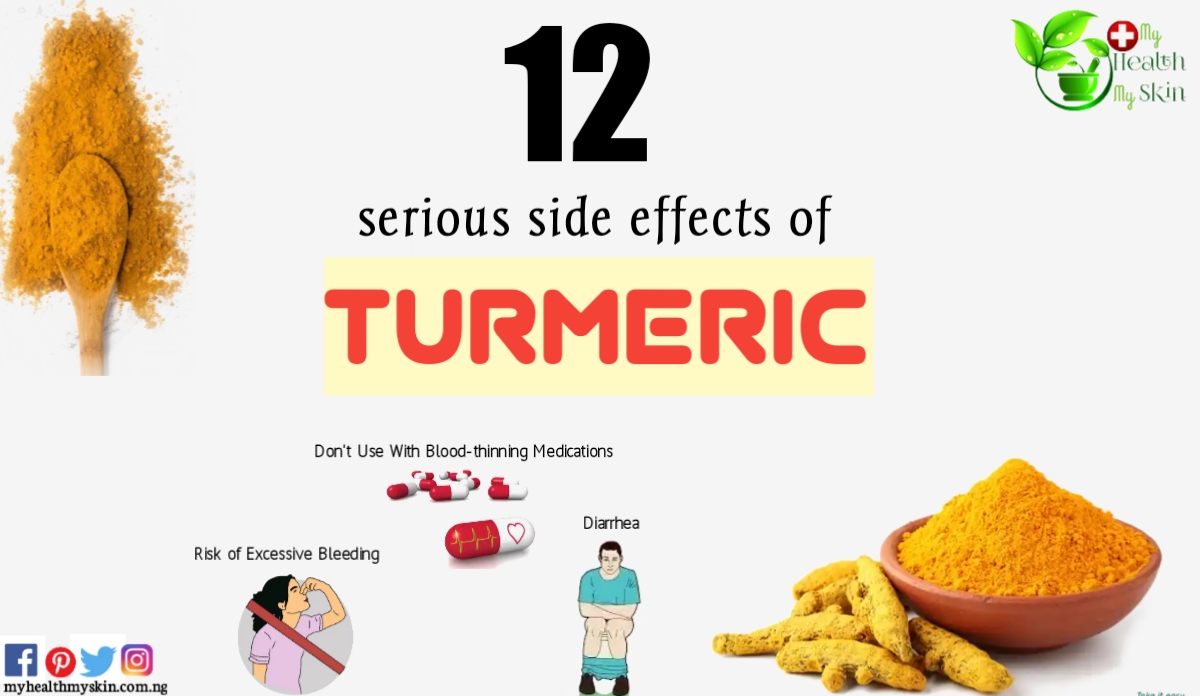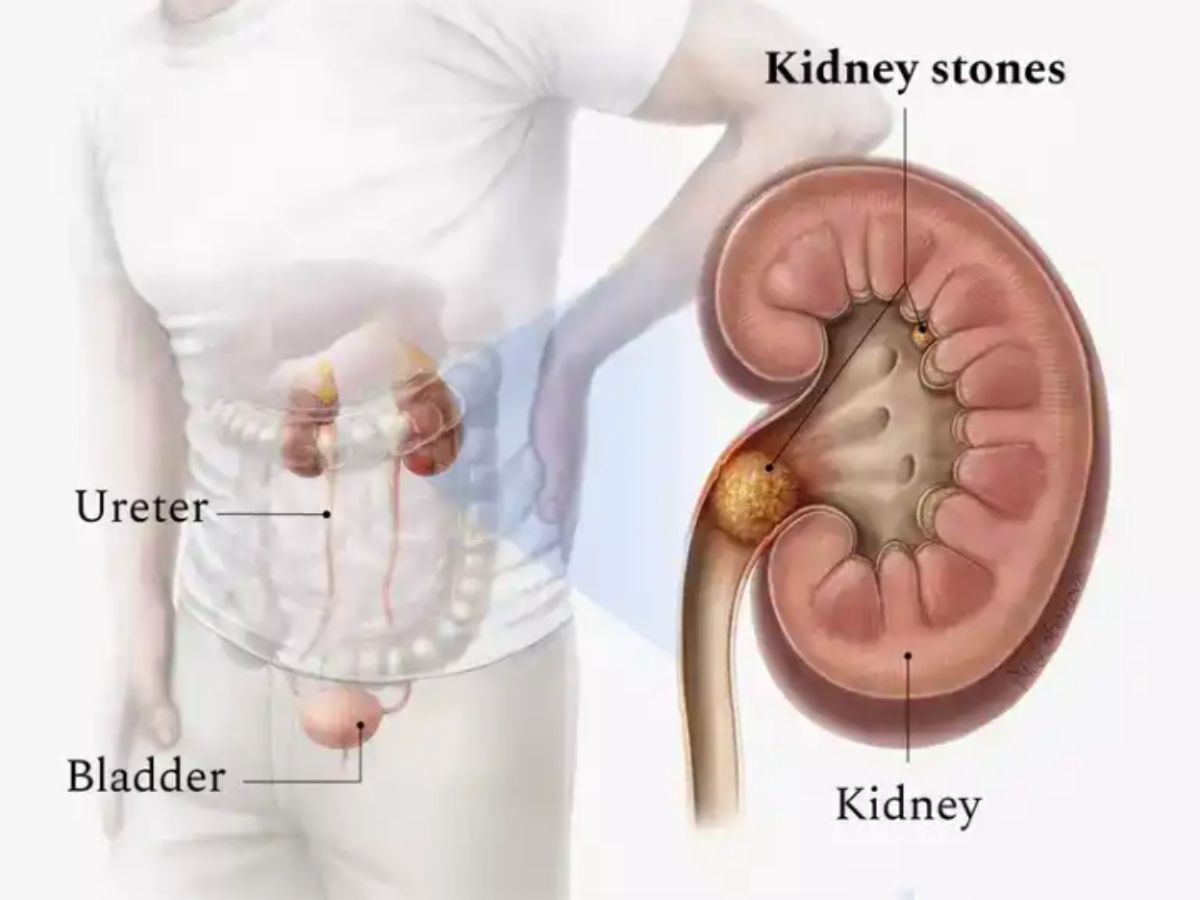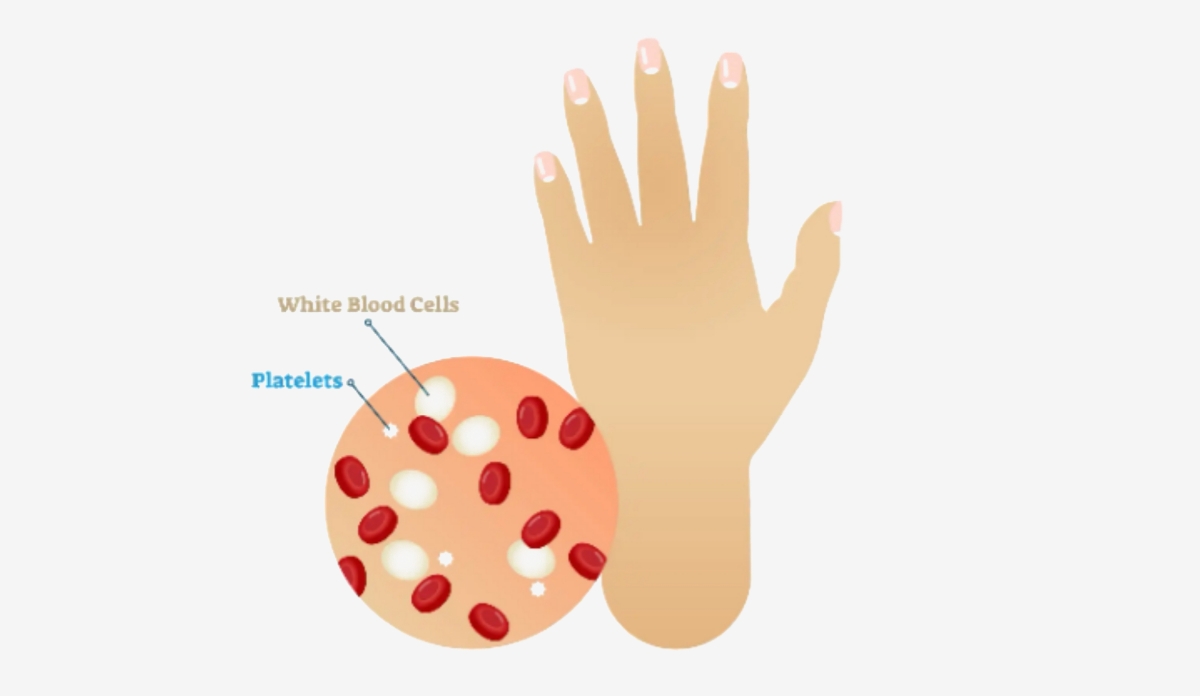Turmeric (Curcuma Longa) is a very popular Ayurveda medicine used for centuries to treat many common ailments. However, this medicinal herb has some adverse effects too. It may interact with certain medications and supplements. Excessive intake of turmeric may cause diarrhea and Gastrointestinal Problems and increase the risk of miscarriage.
The herb may also lower blood pressure way too much. Though the possible side effects of turmeric largely occur due to its over consumption, it is necessary to be aware of them.
Turmeric has recently been hailed as a superfood, but did you know that it can have some serious side effects?
This, of course, applies to taking large amounts of turmeric as a supplement, not cooking the occasional dish with it – that’s generally considered perfectly safe (and tasty!)
What are Serious Side Effect associated with Using Turmeric?
1. Lowers Blood Pressure
Blood pressure that is too low can be dangerous, and high doses of turmeric can lower blood pressure. If you take medications to lower your blood pressure, you need to be careful while taking turmeric.
2. Gastrointestinal Problems
Having turmeric cooked in curry hasn’t been linked to stomach issues, but high doses of turmeric over an extended period of time has been found to cause gastrointestinal problems.
Adults who consume more than the recommended amount of turmeric supplement (400 mg to 3 grams) can suffer from stomach problems – make sure you only take the recommended amount. Turmeric may also cause heartburn and indigestion.
3. Increased Risk of Gallstones and Gallbladder Issues
Turmeric contains a significant amount of oxalate, a substance that can increase the risk of developing gallstones. According to a study in the American Journal of Clinical Nutrition, urine showed increased levels of oxalate when the subjects had taken turmeric, compared to the control group.
Increased gallbladder contractions were also reported when turmeric supplements of 20-40 mg were taken. If you have gallbladder issues, it’s best to avoid turmeric supplements.
4. Risk of Excessive Bleeding
Turmeric has been found to slow down blood clotting, and this can increase the risk of bruising and bleeding in those who have bleeding disorders.
Turmeric could also interact with certain medications to cause excessive bleeding, so if you are on any medications for bleeding disorders or have bleeding disorders, stop taking turmeric.
5. Increased Risk of Kidney Stones
As with gallstones, too much turmeric can increase the risk of developing kidney stones because of the oxalates in it. These oxalates can bind to calcium to form calcium oxalate, which is insoluble, and mainly responsible for kidney stones.
In one study, consuming turmeric led to a higher urinary oxalate excretion compared to cinnamon, so it’s wise to avoid turmeric if you have kidney problems.
6. Pregnant and Breastfeeding Women
The curcumin in turmeric has been shown to reduce blood platelet function, and should be avoided by those taking blood thinning medication such as Warfarin or Coumadin.
7. May Cause Allergic Reactions
Curcumin can cause contact allergy, and some people have reported contact dermatitis and urticaria (hives) due to skin contact with turmeric. As turmeric is part of the same family as ginger, you are more likely to have a reaction if you’re allergic to ginger. If you are allergic to yellow food coloring, you may also be allergic to turmeric.
8. Could be a Factor in Infertility
If men take large amounts of turmeric supplements, it could have an effect on their testosterone levels and decrease sperm movement, which could lead to infertility.
9. May Cause Iron Deficiency
Studies have shown that some compounds in turmeric bind to iron. This could lead to a decrease in the body’s ability to absorb iron from food, which could lead to iron deficiency.
10. Avoid if You Are Having Surgery
If you are due to have an operation, avoid turmeric for one to two weeks before surgery. This is because of turmeric’s tendency to inhibit blood clotting.
11. Nausea and Diarrhea
Nausea and diarrhea are two symptoms associated with turmeric supplements, and this is because the curcumin in turmeric can cause irritation in the gastrointestinal tract.
Even low doses can cause nausea in some people, so if you notice any symptoms after taking turmeric, stop using it.
12. Don’t Use with Blood Thinning Medication
The curcumin in turmeric has been shown to reduce blood platelet function, and should be avoided by those taking blood thinning medication such as Warfarin or Coumadin.
So, that was all about turmeric serious side effects and Are there any interactions with medications? Now let’s look into some possible interactions with turmeric or curcumin.
Are there any interactions with medications?
If you are currently being treated with any of the following medications, you should not use turmeric or curcumin in medicinal forms without first talking to your health care provider.
Here are possible Interactions with Turmeric:
Turmeric might interact with Black pepper Ginger
And these medications:
Drugs for diabetes (that lower blood sugar)
Turmeric may make the effects of these drugs stronger, increasing the risk of hypoglycemia (low blood sugar).
Blood-thinning Medications
Tumeric may make the effects of these drugs stronger, raising the risk of bleeding. Some medications that slow blood clotting include: warfarin (Coumadin), clopidogrel (Plavix), and aspirin, among others.
Drugs that Reduce Stomach Acid
Turmeric may interfere with the action of these drugs, increasing the production of stomach acid.
- Cimetidine
- Famotidine
- Ranitidine
- Esomeprazole
- Omeprazole
- Lansoprazole
Precautions
Infertility
Turmeric might reduce testosterone levels and decrease sperm movement when take orally (by mouth) by men. This might reduce fertility. Turmeric should be used with caution by people trying to have a baby.
Iron Deficiency
Taking high amounts of turmeric might prevent the absorption of iron. Turmeric should be used cautiously in people with iron deficiency.
Surgery
Turmeric might slow blood clotting. It might cause extra bleeding during and after surgery. Stop using turmeric at least 2 weeks before a scheduled surgery.
Pregnancy and Breast-feeding
During pregnancy and while breast feeding, turmeric is LIKELY SAFE when taken orally (by mouth) in amounts commonly found in food.
However, turmeric is LIKELY UNSAFE when taken by mouth in medicinal amounts during pregnancy and while breast-feeding.
It might also promote a menstrual period or stimulate the uterus, putting the pregnancy at risk. If you are pregnant, do not take medicinal amounts of turmeric. There is not enough information to rate the safety of medicinal amounts of turmeric during breast-feeding. It is best not to use it.
Gallbladder Problems
Do not use turmeric if you have gallstones or a bile duct obstruction. Turmeric can make gallbladder problems worse.
Hormone-sensitive condition such as breast cancer, uterine cancer, ovarian cancer, endometriosis, or uterine fibroids
Turmeric contains a chemical called curcumin, which might act like the hormone estrogen. In theory, turmeric might make hormone-sensitive conditions worse. However, some research shows that turmeric reduces the effects of estrogen in some hormone-sensitive cancer cells. Therefore, turmeric might have beneficial effects on hormone-sensitive conditions. Until more is known, use cautiously if you have a condition that might be made worse by exposure to hormones.
Diabetes
Curcumin, a chemical in turmeric, might decrease blood sugar in people with diabetes. Use with caution in people with diabetes as it might make blood sugar too low.
Gastroesophageal reflux disease (GERD)
Turmeric can cause stomach upset in some people. It might make stomach problems such as GERD worse. Do not take turmeric if it worsens symptoms of GERD.
Bleeding Problems
Taking turmeric might slow blood clotting. This might increase the risk of bruising and bleeding in people with bleeding disorders.
Recomended Dosage
For Adults
Mouth Intake
- For high cholesterol: 1.4 grams of turmeric extract in two divided doses daily for 3 months has been used.
- For itching (pruritus): 1500 mg of turmeric in three divided doses daily for 8 weeks has been used. Also, a specific product containing turmeric extract (C3 Complex, Sami Labs LTD) plus black pepper or long pepper has been used daily for 4 weeks.
- For osteoarthritis: 500 mg of a non-commercial turmeric product four times daily for 4-6 weeks has been used. 500 mg of a specific turmeric extract (Turmacin, Natural Remedies Pvt. Ltd.) has been used twice daily for 6 weeks (89721). 500 mg of a specific turmeric extract (Meriva, Indena) containing turmeric and phosphatidylcholine has been used twice daily for 2-3 months. Other combination products have also been used.
For Children
Mouth Intake
- For high cholesterol: 1.4 grams of turmeric extract in two divided doses daily for 3 months has been used in children at least 15 years-old.



















